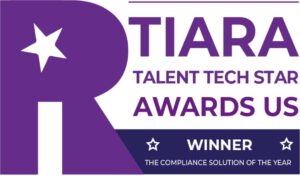Oregon has also passed House Bill 3306, which addresses the rules for organizations that get money from local workforce development boards. Such organizations must provide specific wages, have a plan for how those wages can increase, and give participants a training plan outlining all these details. The bill also focuses on the establishment of wage rate standards for skilled occupations within the health care, manufacturing, and technology industry sectors, with variations based on the locality.
Key Points of the Bill
- The law requires entities that receive funds for certain workforce program initiatives to establish wage standards and develop training for individuals who participate in programs administered by an entity if, under the program, the entity provides individuals with paid work experience.
- The definition of an “entry-level training wage” as a wage that is set up by the entity that is in line with the wage progression plan set by the entity. This wage amount must be a percentage of the average area wage standard for an hour’s work in the same trade or occupation in the local area where the labor is performed, but it cannot be less than the applicable state minimum wage rate.
- The entity must set up a wage profession schedule, which is based on the average wage for the job in the local area and must describe how an individual can move up in wage levels.
- Entities should create and distribute a training plan for individuals participating in the program. The training plan must include, at minimum:
- The entry-level training wage that will be paid to the individual;
- A statement that the individual shall be paid according to the wage progression schedule established by the entity, along with a description of the requirements that the individual must meet in order to progress to a higher wage rate under the wage progression schedule;
- A statement that the entry-level training wage may not be less than the federal minimum wage rate or the applicable state minimum wage rate, whichever is greater; and
- A statement explaining that the entry-level training wage is a minimum standard and that a higher wage rate shall be paid to the individual if so required under other applicable federal or state laws, regulations or a collective bargaining agreement.
- Every individual working for these entities is considered an employee under state wage and hour laws and under laws that prohibit workplace discrimination and retaliation.
- Additionally, the bill addresses the fact that the Higher Education Coordinating Commission, in consultation with the State Workforce and Talent Development Board, is required to establish wage rate standards for each skilled occupation within the health care, manufacturing, and technology industry sectors. These wage rate standards should be varied depending on the locality, which means that different areas may have different wage requirements for the same occupation within these industries.
- The bill also requires that once every two years, each industry consortium that represents the health care, manufacturing, and technology industry sectors must:
- Establish the aforementioned wage rate standards using relevant economic and employment data made available by the Employment Department. If such data is not available, the consortium can use relevant economic and employment data from other resources as identified by the commission’s rules.
- Submit a statement to the commission summarizing the methodology used to recalculate the wage rate standards and the effective date of the newly calculated wage rate standards.
This new law will take effect on January 1, 2024.






